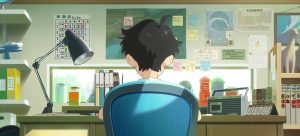 It being natsuyasumi time and a generally crappy anime season, I’ve had time to catch up on a few theatrical films this past week. And all good ones, too. I quite enjoyed the subtle differences between the more literary film version of the underrated Wakaogamai ga Shuugakusei and the TV series, and Maquia was a good reminder (as if we needed one after Anohana) that Okada Mari can do sincere very well. But to my tastes the best of the three was, no doubt, Penguin Highway.
It being natsuyasumi time and a generally crappy anime season, I’ve had time to catch up on a few theatrical films this past week. And all good ones, too. I quite enjoyed the subtle differences between the more literary film version of the underrated Wakaogamai ga Shuugakusei and the TV series, and Maquia was a good reminder (as if we needed one after Anohana) that Okada Mari can do sincere very well. But to my tastes the best of the three was, no doubt, Penguin Highway.
 Morimi Tomihiko is a really, really interesting writer. There’s a distinct identity running through all of his adapted works, despite their being greatly diverse in tone. The Tatami Galaxy universe finds Morimi tied in with a director whose singular creative identity is just as strong, Yuasa Masaaki, but the anime are still recognizably Morimi. The Uchouten Kazoku series are more earnest, more innocent in their way, and P.A. Works’ very respectful treatment allows Morimi’s stamp to shine through the “house style” in a way Yuasa’s adaptations don’t.
Morimi Tomihiko is a really, really interesting writer. There’s a distinct identity running through all of his adapted works, despite their being greatly diverse in tone. The Tatami Galaxy universe finds Morimi tied in with a director whose singular creative identity is just as strong, Yuasa Masaaki, but the anime are still recognizably Morimi. The Uchouten Kazoku series are more earnest, more innocent in their way, and P.A. Works’ very respectful treatment allows Morimi’s stamp to shine through the “house style” in a way Yuasa’s adaptations don’t.
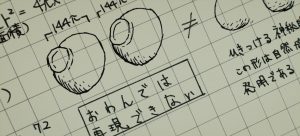 Then we have Penguin Highway. This is a story which certainly shares more thematically with Uchouten than Tatami Galaxy, but it’s very much a beast unto itself. While the hero of the story is a child and one could even go so far as to call this a children’s film, I think the audience who will get the most out of it are adults with a strong connection to the child inside them (which is also true of Uchouten Kazoku). Again we have an adaptation that doesn’t take the Yuasa route of stylizing every aspect of the work – the up and coming Studio Colorido and 30 year-old director Ishida Hiroyasu allow the wonder and beauty of Morimi’s work to stand on their own. There are some vaguely Ghibli-like elements here (character designer Arai Youjirou is a Ghibli expat and now Colorido stalwart), but Penguin Highway is a decidedly post-Ghibli film.
Then we have Penguin Highway. This is a story which certainly shares more thematically with Uchouten than Tatami Galaxy, but it’s very much a beast unto itself. While the hero of the story is a child and one could even go so far as to call this a children’s film, I think the audience who will get the most out of it are adults with a strong connection to the child inside them (which is also true of Uchouten Kazoku). Again we have an adaptation that doesn’t take the Yuasa route of stylizing every aspect of the work – the up and coming Studio Colorido and 30 year-old director Ishida Hiroyasu allow the wonder and beauty of Morimi’s work to stand on their own. There are some vaguely Ghibli-like elements here (character designer Arai Youjirou is a Ghibli expat and now Colorido stalwart), but Penguin Highway is a decidedly post-Ghibli film.
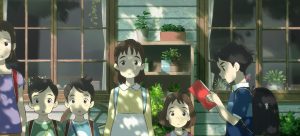 The protagonist is Aoyama (a very solid Kita Kana) a precocious fourth-grader who literally counts the days until he’s an adult and dreams of what a blazing success he’s going to be. Aoyama is in love with Onee-san (Aoi Yuu) – these are the only names we get, reflecting Aoyama-kun’s child’s worldview – the receptionist at his dentist’s office and his evening chess instructor. Specifically he’s in love with her boobs, which he finds fascinating in ways he can’t quite understand, but in truth he loves everything about her. Aoyama-kun is a wonderful main character, quite believably a child with an adult’s intellect but not experiences or sense of context, and one can’t help but imagine that there could be autobiographical elements in this story (Morimi-sensei had to have been a really precocious child himself).
The protagonist is Aoyama (a very solid Kita Kana) a precocious fourth-grader who literally counts the days until he’s an adult and dreams of what a blazing success he’s going to be. Aoyama is in love with Onee-san (Aoi Yuu) – these are the only names we get, reflecting Aoyama-kun’s child’s worldview – the receptionist at his dentist’s office and his evening chess instructor. Specifically he’s in love with her boobs, which he finds fascinating in ways he can’t quite understand, but in truth he loves everything about her. Aoyama-kun is a wonderful main character, quite believably a child with an adult’s intellect but not experiences or sense of context, and one can’t help but imagine that there could be autobiographical elements in this story (Morimi-sensei had to have been a really precocious child himself).
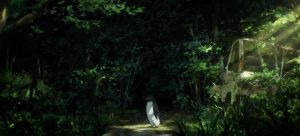 The film portrays Aoyama’s pre-sexual (for lack of a better term) curiosity beautifully, striking a perfect balance in tone, and does a wonderful job of communicating how far advanced he is intellectually as compared to emotionally. There are other characters here – the hapless best friend, the school bully and his flunkies, the genius girl (played by Han Megumi) in love with Aoyama, Aoyama’s parents (his father is a scientist himself, and clearly his son’s mentor). But the heart of the story is Aoyama and Onee-san, whose relationship doesn’t necessarily make sense but because of the nature of the narrative doesn’t have to.
The film portrays Aoyama’s pre-sexual (for lack of a better term) curiosity beautifully, striking a perfect balance in tone, and does a wonderful job of communicating how far advanced he is intellectually as compared to emotionally. There are other characters here – the hapless best friend, the school bully and his flunkies, the genius girl (played by Han Megumi) in love with Aoyama, Aoyama’s parents (his father is a scientist himself, and clearly his son’s mentor). But the heart of the story is Aoyama and Onee-san, whose relationship doesn’t necessarily make sense but because of the nature of the narrative doesn’t have to.
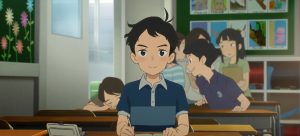 I won’t try to explain the plot (or the ending), which likewise isn’t really designed to make sense. Suffice to say there are a lot of penguins showing up in a small Japanese city for some reason, a giant shimmering ball in the middle of a field, and jabberwockies. If you know Morimi’s work you know he doesn’t like to puncture the bubble of wonder by explaining how (or why) everything works, and that’s especially true with Penguin Highway. This is a mood piece, a musing on childhood and love, and there are certainly metaphorical elements with respect to puberty that are reminiscent of FLCL (the real one, not the Cartoon Network abominations). But the worst thing you can do with this movie is to analyze it too much – rather, it’s designed to be felt.
I won’t try to explain the plot (or the ending), which likewise isn’t really designed to make sense. Suffice to say there are a lot of penguins showing up in a small Japanese city for some reason, a giant shimmering ball in the middle of a field, and jabberwockies. If you know Morimi’s work you know he doesn’t like to puncture the bubble of wonder by explaining how (or why) everything works, and that’s especially true with Penguin Highway. This is a mood piece, a musing on childhood and love, and there are certainly metaphorical elements with respect to puberty that are reminiscent of FLCL (the real one, not the Cartoon Network abominations). But the worst thing you can do with this movie is to analyze it too much – rather, it’s designed to be felt.
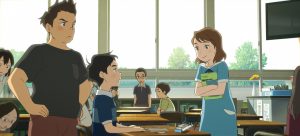 I’m certainly curious to see what Colorido and Ishida-sensei do in the future – Penguin Highway is a very impressive feature debut for a man so young. And of course, I would love to see everything Morimi (who’s only just turned 40 himself, making his bibliography quite stunning) has written adapted – nothing that comes from his pen has been a clunker so far, and he’s one of the most interesting young novelists in the world. Penguin Highway is a film kids should see, certainly – they won’t get it on every level, but all good kids’ films are like that. But in truth it’s a movie that has something to offer any anime fan of any age, or indeed anyone with an open mind and a sense of wonder. Especially those of us who don’t mind remembering the days of our youth.
I’m certainly curious to see what Colorido and Ishida-sensei do in the future – Penguin Highway is a very impressive feature debut for a man so young. And of course, I would love to see everything Morimi (who’s only just turned 40 himself, making his bibliography quite stunning) has written adapted – nothing that comes from his pen has been a clunker so far, and he’s one of the most interesting young novelists in the world. Penguin Highway is a film kids should see, certainly – they won’t get it on every level, but all good kids’ films are like that. But in truth it’s a movie that has something to offer any anime fan of any age, or indeed anyone with an open mind and a sense of wonder. Especially those of us who don’t mind remembering the days of our youth.


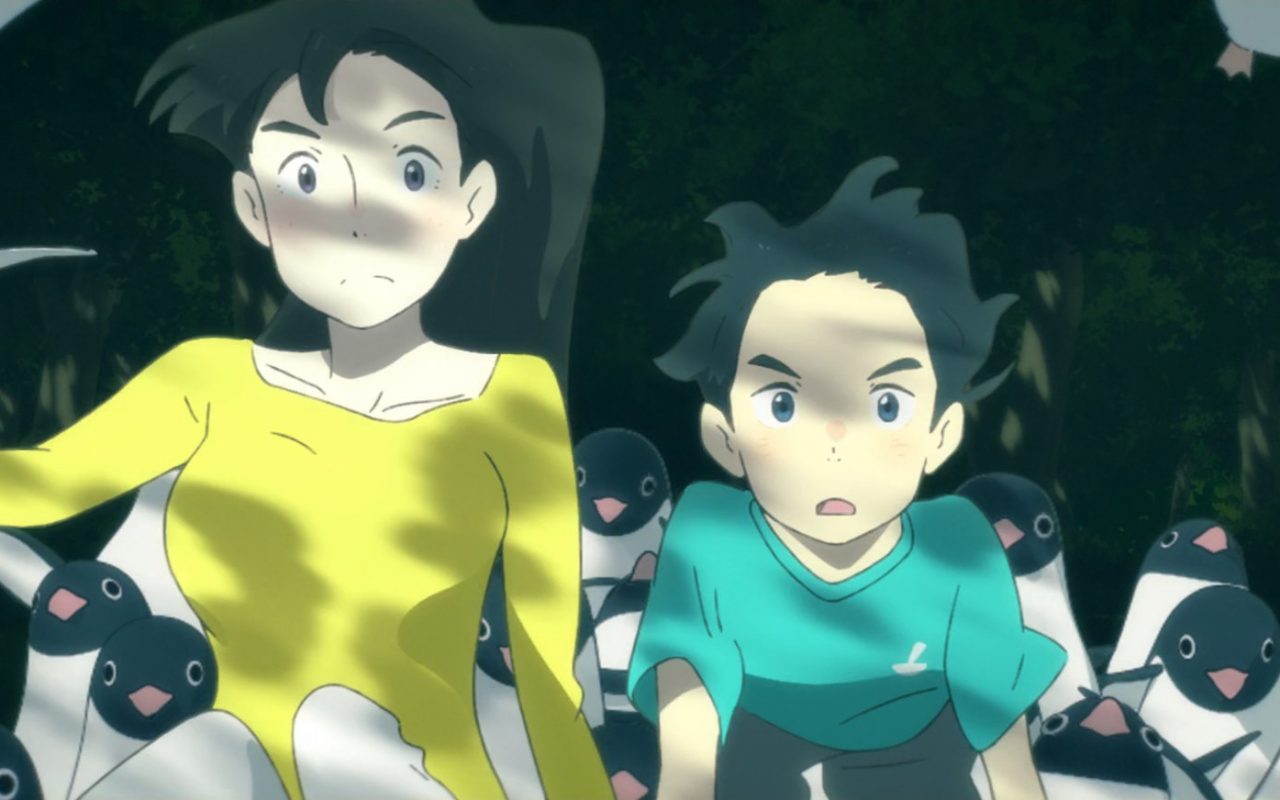
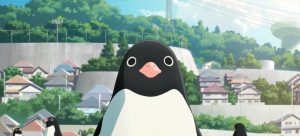
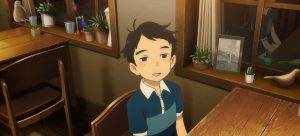
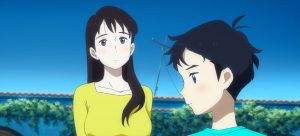
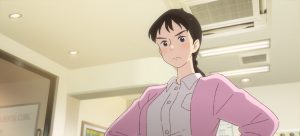

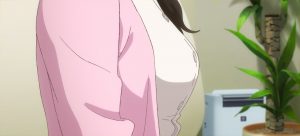
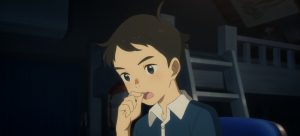
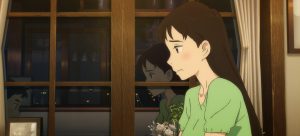
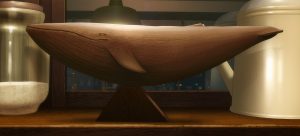
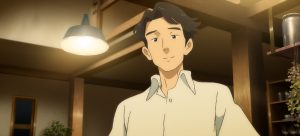
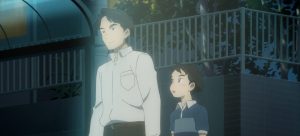
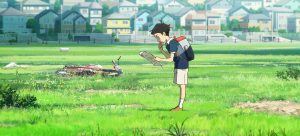
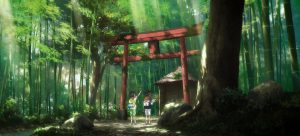
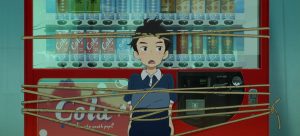
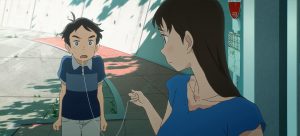
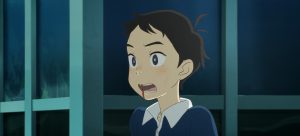
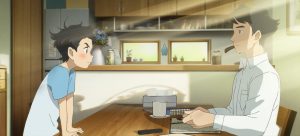
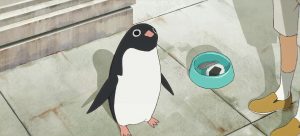
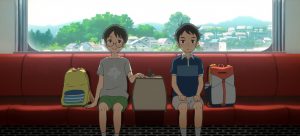
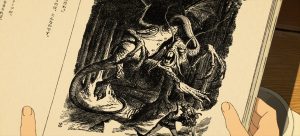
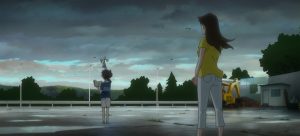
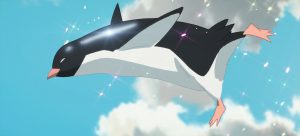

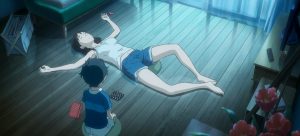
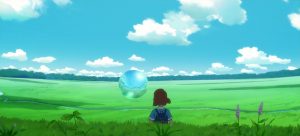
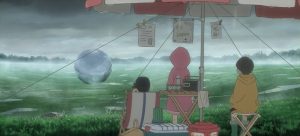


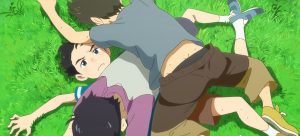

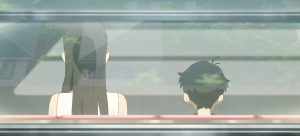
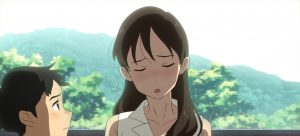
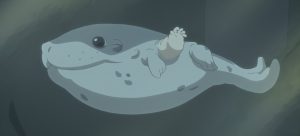
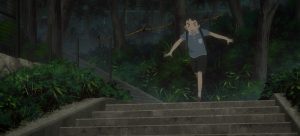
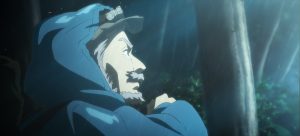
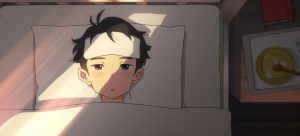

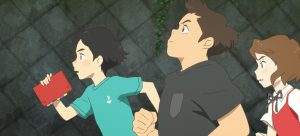
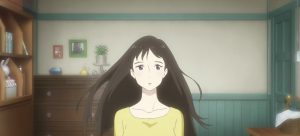
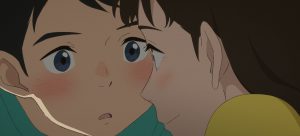
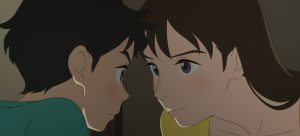

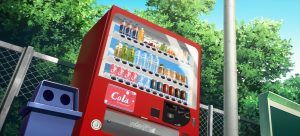
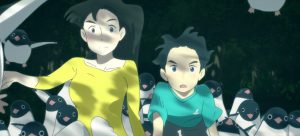
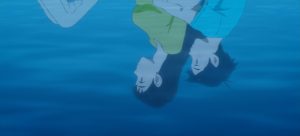

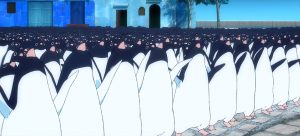
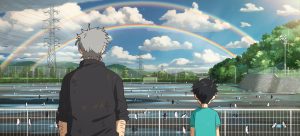

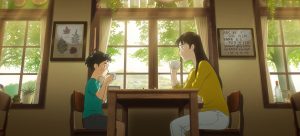
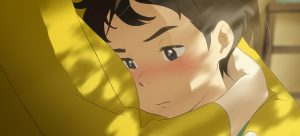
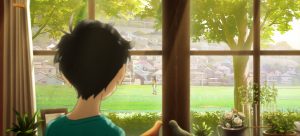
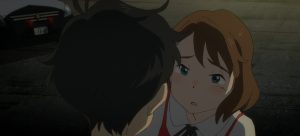

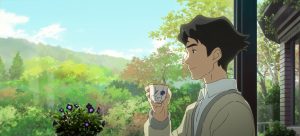
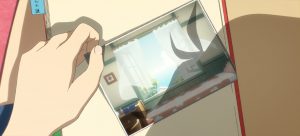

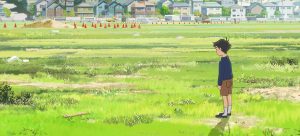
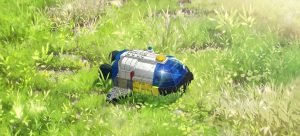

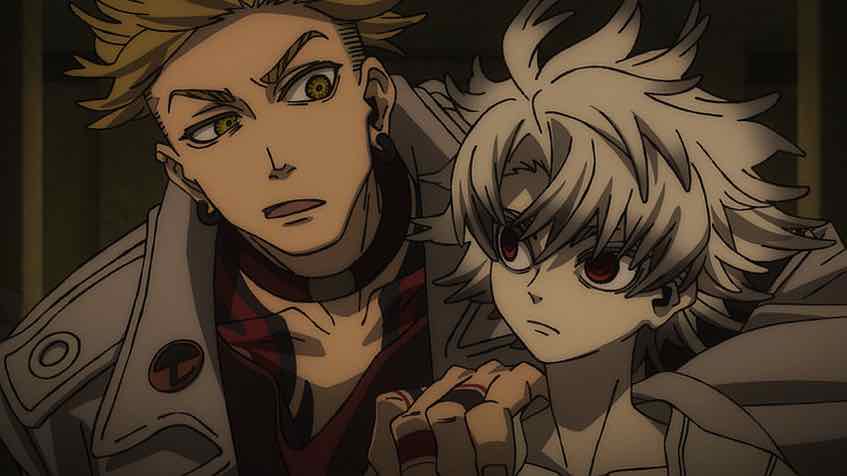
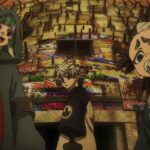
Yukie
August 12, 2019 at 9:27 pmI think this is the best animated film I’ve seen in recent years and probably my favorite animated work of Morimi’s. The technical aspects of the animation may not be avant-garde (actually, after Devilman Crybaby I think I’m fine without some Yuasa for a while), but I loved the story. It’s a love song to childlike wonder, imagination, and fascination with Mother Nature. The story is so fresh (and weird in that Morimi-esque way) and the music is fabulous (I fangirled so hard when Utada Hikaru’s song came on at the end, what a nice surprise). I didn’t know someone from Ghibli worked on this, but it all makes sense now.
Guardian Enzo
August 12, 2019 at 9:34 pmYes, it’s very “traditional” as opposed to Yuasa’s auteur style – which frankly I don’t think Morimi really needs. He’s a unique writer – instantly recognizable and totally Japanese in the same sense that Murakami is (though stylistically they’re obviously miles apart). Some of the backgrounds are really gorgeous and as you say, the music is pretty great.
dc22
October 24, 2019 at 12:57 amI agree Yukie, probably the best I’ve seen since A Silent Voice. What a pleasant surprise.
Anchen
August 17, 2019 at 5:03 amI actually managed to catch two of these movies in their limited US theater releases (Maquia and Okko’s Inn) and the third, Penguin Highway I managed to catch during Anime Fest at NYCC last year. Like you I enjoyed all three of these movies, and I might have to catch the tv series for Wakaogamai ga Shuugakusei as I never watched it and didn’t realize they are actually the same story/setting. As for Penguin Highway, I enjoyed the film a lot, and it definitely does invoke that sort of wonder/just follow along the ride feeling that was executed well to feel fun rather than just trippy.
Guardian Enzo
August 17, 2019 at 8:13 amI recommend the Wakaokami series. Just by nature of having so much time it’s better able to flesh out the characters. While it’s all Madhouse the director and much of the staff is different so watching the series and the film you get quite a contrast in style and tone.